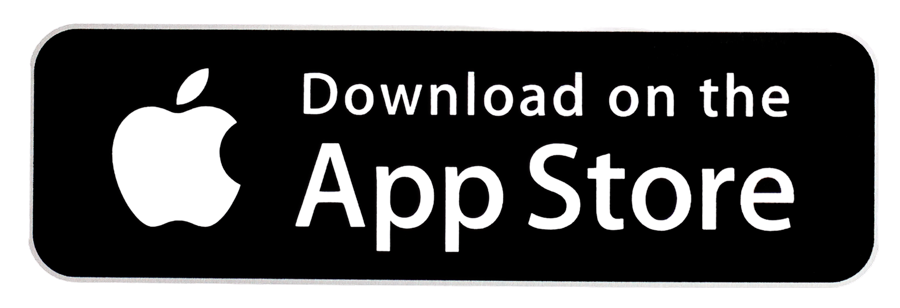[vc_row][vc_column][vc_column_text]
Thousands of students in Israel try to get accepted into medical schools each year. Thousands more dream of becoming doctors but don’t even try to apply because the entry requirements are very high, and for many, it seems almost impossible. How difficult is it to get into medical school in Israel? The answer is very difficult. It requires a combination of nearly perfect high school grades, including scientific subjects, with a weighted average above 110, along with a psychometric score above 700, and at some universities, even much higher. It’s worth noting that even those exceptional individuals who pass the described threshold must undergo computerized personality tests and interviews that together filter out more than eighty percent of candidates who had passed the required threshold.
At this point in students’ lives, as they and their peers sort into different professions, those aspiring to study medicine have three options:
[/vc_column_text][vc_single_image image=”32522″ img_size=”full” add_caption=”yes”][vc_column_text]
How to Get Accepted to Medical School
Try to get accepted to medical school in Israel despite the great difficulty.
This path often takes two to three years and includes taking multiple psychometric tests to improve the psychometric score as much as possible, along with improving high school grades, sometimes down to a single point. This is to pass the described threshold and advance to the second stage of interviews and personality tests. Although in most cases this option ends in rejection and some disappointment, it’s important to try, especially if there’s a reasonable chance of acceptance.
Admission to universities abroad.
Regarding the first option, many students frequently ask how long they should keep trying? How many years and tests should they invest before saying enough and considering other options? The answer is obviously individual, but as a rule of thumb, if after one to two years of trying to get into medical school in Israel you still haven’t been accepted, it’s worth considering the option of getting accepted to medical studies abroad at English-speaking universities in Europe, while continuing to try in Israel. This way, students at least know they have another option in case of another rejection in Israel.
The second option, relevant for students who are far from meeting Israel’s medical school admission threshold, is to study medicine at English-speaking faculties in Europe. This option is the most effective and in most cases results in admission to medical studies and practicing medicine after six years of study. This option has become increasingly popular over the years, attracting hundreds of Israelis annually who go abroad to fulfill their medical dreams and complete their studies with great success compared to other international students.
For more information, leave your details in the form – we’ll be happy to help you too!
[/vc_column_text]
Error: Contact form not found.
[vc_column_text]Medical Career Change in Israel.
The third option, chosen by many students, is pursuing a bachelor’s degree in a scientific field, such as life sciences, neuroscience, or medical sciences, hoping to get accepted into a four-year program in Israel after graduation. This option is, in my opinion, the least favorable of the three, since only a small percentage of students in this program get accepted to medical school in Israel after graduation, and the rest, after studying difficult scientific subjects for about four years, find that the path has no real benefit in terms of medical school admission.
Why do most students with a bachelor’s degree in scientific fields fail to make a career change to medicine in Israel? The answer is essentially the huge gap between supply and demand. Hundreds of students compete for dozens of spots in the few four-year programs available in Israel. Acceptance requires a very high GPA in the bachelor’s degree, around ninety percent, as well as passing a scientific knowledge test, also with a very high score.
However, despite the low odds, dozens of students in Israel choose this path each year, wanting to avoid leaving home for education and hoping to be among those who reach the holy grail and fulfill their dream of studying medicine in Israel. Unfortunately, most students, as mentioned, are not accepted in Israel and end up looking for another path to fulfill their dream after graduation.
[/vc_column_text][vc_single_image image=”32518″ img_size=”full” add_caption=”yes”][vc_column_text]
Medical Career Change Abroad
At the stage where candidates feel they’ve exhausted their options, they turn to us – Medical Doctor – and here we can offer them two options: one is to apply for a four-year program in Europe, for example – in Cyprus, a branch of St. “George’s” University from England, and the second is to apply for six-year programs, just like high school graduates without a bachelor’s degree.
Medical Career Change – Four-Year Program in Europe
To be accepted into a four-year program in Europe, completion of core science subjects is required, as well as passing the MCAT exam, which is originally used for American students with bachelor’s degrees applying to medical schools in the USA. The MCAT is considered extremely difficult. It covers basic scientific subjects – biology, chemistry, physics, anatomy, physiology, and also includes a section on psychology and sociology. The chances of acceptance to the European program are considered better compared to acceptance chances in Israel, and indeed our students are accepted into this program every year.
The medical studies program in Cyprus offers students an interesting and challenging track of two pre-clinical years in Nicosia, and two clinical years at Tel Hashomer Hospital. The pre-clinical years are considered highly intensive and require excellent learning abilities from students, to the point of complete dedication to studying. The clinical years are conducted at Tel Hashomer-Sheba Hospital, one of the world’s leading hospitals in medical service and academic medicine, and are taught with the highest quality and rigor. At the end of their studies, students can take the American licensing examination (USMLE) Step 1 – pre-clinical, and Step 2 – clinical knowledge, and receive an Israeli license in addition to American and European licenses. It should be noted that the four-year program in Cyprus is very expensive with tuition of about seventy thousand NIS per year, for four years.
For more information leave your details – we’ll be happy to help you too!
[/vc_column_text]
Error: Contact form not found.
[vc_column_text]Medical Career Change in a Six-Year Program
Students with a bachelor’s degree and graduates of core subject courses who failed to get accepted in Israel, and also not to the European four-year program, are left with the original choice they had as high school graduates – to pursue a medical career change through a six-year program at international English-speaking faculties in Europe. Of course, this option, at that point in time, involves about ten years of study, including both a bachelor’s degree and complete medical studies, making it the longest and least effective of the three options we listed initially.
Therefore, when many high school graduates come for academic counseling and ask us each year whether it’s right to pursue a scientific bachelor’s degree hoping to make a career change to medicine and get accepted to a four-year program in Israel or Europe, we usually advise against it. However, we do advise in favor of early departure for medical studies in a six-year program in Europe for those who don’t meet the threshold requirements for medical school admission in Israel.
However, when bachelor’s degree graduates come for counseling and ask if they can make a career change to medicine, I advise in favor, whether in a four-year or six-year program as mentioned. This is because from our perspective, choosing a profession is the most important choice we make in life. This decision must be made according to a genuine desire to work in a profession we love and want, and in this matter, compromises should be avoided.
[/vc_column_text][vc_single_image image=”32539″ img_size=”full” add_caption=”yes”][vc_column_text]
Don’t Give Up on Your Dream
Many times in the past, we’ve met aspiring doctors who decided to compromise and not study medicine. They studied another profession and even succeeded greatly in it. Sometimes they came to me for counseling for themselves or their children, in their forties or fifties, when they already had families. When these dreamers talk about wanting to be doctors, a spark ignites and their eyes tear up, because they chose wrongly, and this dream they didn’t fulfill. While it’s true that there’s no use crying over spilled milk, we should be wise enough not to spill that milk in the first place. We should pursue our dream, through the first, second, or third option, and even if we need to make a career change to medicine, we should stick to our truth, our desire, and our freedom to choose what we want to do when we grow up.
[/vc_column_text][/vc_column][/vc_row][vc_row][vc_column][/vc_column][/vc_row]





